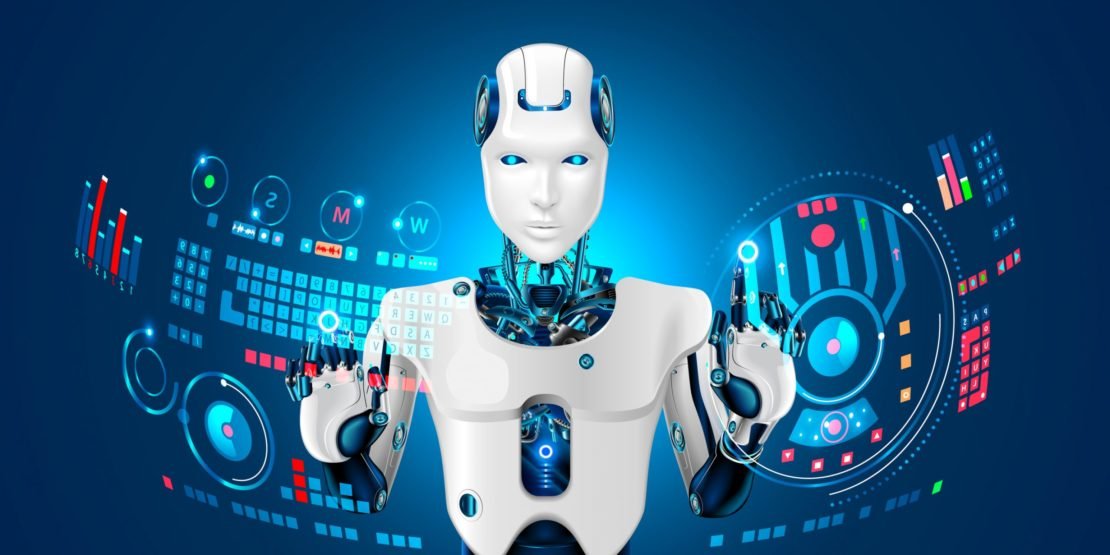The future is a scary place…but one also filled with opportunity.
On the one hand you have a rag tag band of human resistance fighters trying to preserve their freedoms and liberate the world from the oppression of their AI overlords and on the other hand you have that same AI, intent, in a coldly mechanistic way to crush humanity beneath its robotic heel…
Or tracks…
Or whatever….Wow, that franchise hasn’t aged well…
But, do you ever feel that way about your hospitality systems?
Well perhaps not that they are trying to eradicate all fleshy life on the planet so much as that they are, resolutely, not giving you complete access to all of your information so that you can make intelligent decisions about your own business?
That has certainly been the case in the past, but the good news is that it does not have to be the case in the future.
In this future rather than being shackled by the machines it is the machines, especially “learning” machines that will free organizations from the silo mentality that, while undoubtedly productive for its time, has increasingly held back innovation.
Each of the silos of the traditional data systems, whether they were Point-of-Sale systems, or Hotel Booking Systems, or Staff Scheduling systems were undeniably useful; but that usefulness began and ended at the edge of their own system walls. They did not “talk” to each other. They did not share information except in the most limited and trivial sense; and perhaps most damning it was difficult to build up a complete picture of how the business was actually performing across, rather than within, silos for this very reason.
But now these silos are, finally, being broken down.
There are a number of buzz-words surrounding what is being done and they tend to flit in and out of fashion depending, it sometimes seems, upon the month of the year. But all of these new systems share the common driver that to be most useful data does not have to be hoarded, it has to be shared; and the more widely that it can be shared the more powerful it is.
Indeed this is the huge difference between data and the resources of the past; it goes far beyond that data is potentially infinite and that other resources had finite limits. But rather that the resources and sources of power in the past were exclusive and that data is collaborative. When you owned an oil well, or a coal mine, or a property such as a hotel then you had the use of it and the benefit, but no-one else could simultaneously exploit it too.
But with data the more of it you have, provided that you can “mine” it properly, the more valuable and powerful it is. Plus, since it is not consumed when it is being used and is not exclusive differing groups of people can look at the exact same data sets in different ways and derive differing benefits from it.
This is a paradigm shift from the resources of the past; but regrettably not one that was wholly seized by the first data practitioners, for entirely logical reasons: not least that the processing power and machine learning techniques to fully exploit what can be known have only recently even begun to catch up with the sheer mass of data being produced.
So we are beginning to see the power of collaborative systems and of systems that act to aggregate data across multiple platforms and types to build up a more complete picture.
Which was great so far as it has progressed. But it has been, perhaps, focused more on the bringing together of the data silos themselves and the breaking down of the barriers between them, than it has on what to do next. After all, what has been released is a tsunami of data, but data by and of itself is far less valuable than you might think and paradoxically the increasing trend of freeing data from silo systems so that it can be combined has revealed another bottleneck. Another “limiting” system if you will.
Human knowledge.
This human knowledge and experience (more vital than ever it can be argued for turning raw data into actionable intelligence) is increasingly slowing the process of getting the most out of the vogue for big data systems. And this has much to do with what knowledge and experience is, and how humans have evolved to exploit what we can know.
While someone could personally know something and have startling insights, even where there was a willingness to share what was known the methods of disseminating this knowledge, or insight were limited.
Printing, especially the invention of the movable typeface, freed human knowledge to be codified, to be set down in books that could be printed in thousands of copies, not laboriously transcribed by hand and, from this, to circle the globe. But you had, and still have, to be at least partially aware of what you were missing to be able to find a book to teach you about it.
The rise of the internet has sped that process. Although, while it has arguably it has made the necessity of knowing much of anything less relevant when you can always “look it up”, it has not eliminated this need. Indeed, I would contest that the people who think this are wrong, simply because there remains the need to have at least some idea of what you should be searching for to be able to successfully find it.
This is equally true when attempting to get the most out of data systems such as those used within the Hospitality Industry. The siloes are breaking down. The data is becoming available. But the benefits derived thus far have been less than they might be due to data overload.
This is where the AI mentioned at the start of this article comes in.
Well not real AI of course, not yet, but machine learning where “smart systems” can take much of the effort out of data analysis. Smart systems can be set up to mimic the knowledge or insights of experts within the field to quickly sift through immense data sets; far quicker than business Owners of Managers could hope to do and with much better accuracy rates too. This reduces the data problem to manageable proportions while highlighting those areas within a business that appear to require more attention and live human insight. Allowing this to be cost effectively given.
The rise of these smart systems and the interconnectedness of data systems through which they will thrive is, in my opinion, the best and most exciting path to the future of businesses and the IT and data systems that will, increasingly, be seen to be their life’s blood.
So what can we say, in closing, about the Hospitality Data Systems of the Future?
That they will increasingly be like all data systems of the future, regardless of the industry:
- The will be seamless and non-siloed.
- They will share data continually and aggregate the data gathered with the aim of providing insight.
- Smart systems and machine learning algorithms’ will filter and mine this information to uncover what is vital from the mass.
- Machine/Human interactive systems will reproduce this filtered information in the most intuitive way for easy understanding and action formulation.










3 responses on "Hospitality Systems of the Future"
clomid tablet Black Licorice And Blood Pressure Meds 5 Off Blood Pressure Medicine Before Bed
These drugs may be used to help strengthen the heart s pumping action, dilate blood vessels to make it easier for blood to flow or help to remove excess fluid diuretics 36 hour cialis online
Elevated glucose transport into the cells and glycolysis itself can be targeted for cancer cell specific therapy 133, 134 canadian pharmacy cialis 2 years in those assigned to tamoxifen